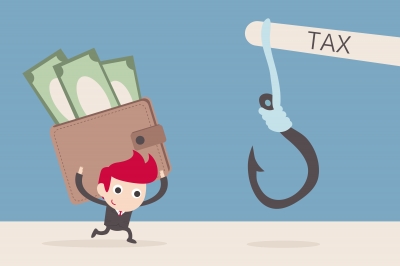Choose the Right Tax Expert for Your Situation
Can the IRS Collect on a 10-Year-Old Tax Debt?
If you have a tax debt with the IRS that is at least ten years old, you might think that the agency doesn't have the ability to pursue you for collection. While most taxpayers receive a reprieve on their tax debt after ten years, in some cases the IRS still has the ability to collect on an old debt. It's important for taxpayers to find out if their accounts are exempt from the ten-year rule so that they can prepare themselves if the IRS decides to pursue collection.
How to Deduct Business Expenses
All businesses have to cover the cost of operating expenses in the course of operation. Many of these expenses are essential to running a company such as repairs, supplies, and office equipment. Other beneficial expenses such as advertising and payroll are also important. The Internal Revenue Service allows business owners to deduct many of these expenses on their personal or business tax returns. However, before they try to claim these deductions, taxpayers should find out what is involved in deducting business expenses.
What Tax Changes You Can Expect in 2013
If you're used to filing your taxes in April of each year you may not be thinking about the possible tax law changes you'll face in 2013. But, even though the end of the year is a few months away, it's a good time to find out what you can expect in the new tax regulations. Several tax provisions that have been in effect for the last few years are set to end in the new year, so preparing yourself in advance can help you think about some tax filing changes you might to make.
Get Ready to File Your 2012 Tax Forms
If tax time is a depressing time of year for you, you may be tempted to put off your tax preparation until the last minute. However, if you begin getting ready for the new tax year now, you'll find that your preparation will be much easier closer to the deadline. Early tax preparation is even more important if you're expecting to pay a large amount of taxes, since you may be able to take steps now that can reduce your tax liability next April.
What is the Statute of Limitations on an IRS Tax Debt?
Taxpayers who are in debt to the IRS may not be aware that the agency is restricted to a certain amount of time to collect on the debt. This means that some individuals who are close to the end of the statute of limitations may only have a short amount of time left to make payments on their accounts. After the statute of limitations runs out, even the IRS cannot legally pursue back tax payments from individual taxpayers.
What is an IRS Bank Account Tax Levy?
Tax Tips for Over 50 and Retirement
Guidelines for Unfiled Tax Returns
Do you have unfiled IRS income tax returns from previous years? If so, you can clear them up by filing the returns in question at any time. Here are a few guidelines to help you clear up your unfiled IRS income taxes.
IRS Tax Levy: How to Avoid and Release
Taxpayers who have a tax levy imposed on their accounts often have to deal with tax troubles for years to come. The levy can dramatically affect their well-being, siphoning off needed income and valuable assets. If you receive a notice of an intent to levy it’s important to find out what is involved.
SUBSCRIBE VIA EMAIL
POSTS BY TOPIC
- Tax Tips and Help (285)
- IRS Collections (121)
- IRS Audit (72)
- Tax Credits and Deductions (70)
- Tax Resolution (62)
- Business Taxes (54)
- Back Taxes (50)
- Wage Garnishment (22)
- Tax Levies (19)
- IRS Payment Plans (15)
- Tax Liens (14)
- Offer in Compromise (9)
- Unfiled Tax Returns (9)
- IRS Tax Attorneys (7)
- Asset Seizure (6)
- Tax Evasion (6)
- Criminal Tax Defense (4)
- Innocent Spouse Relief (4)
- Alimony (1)











